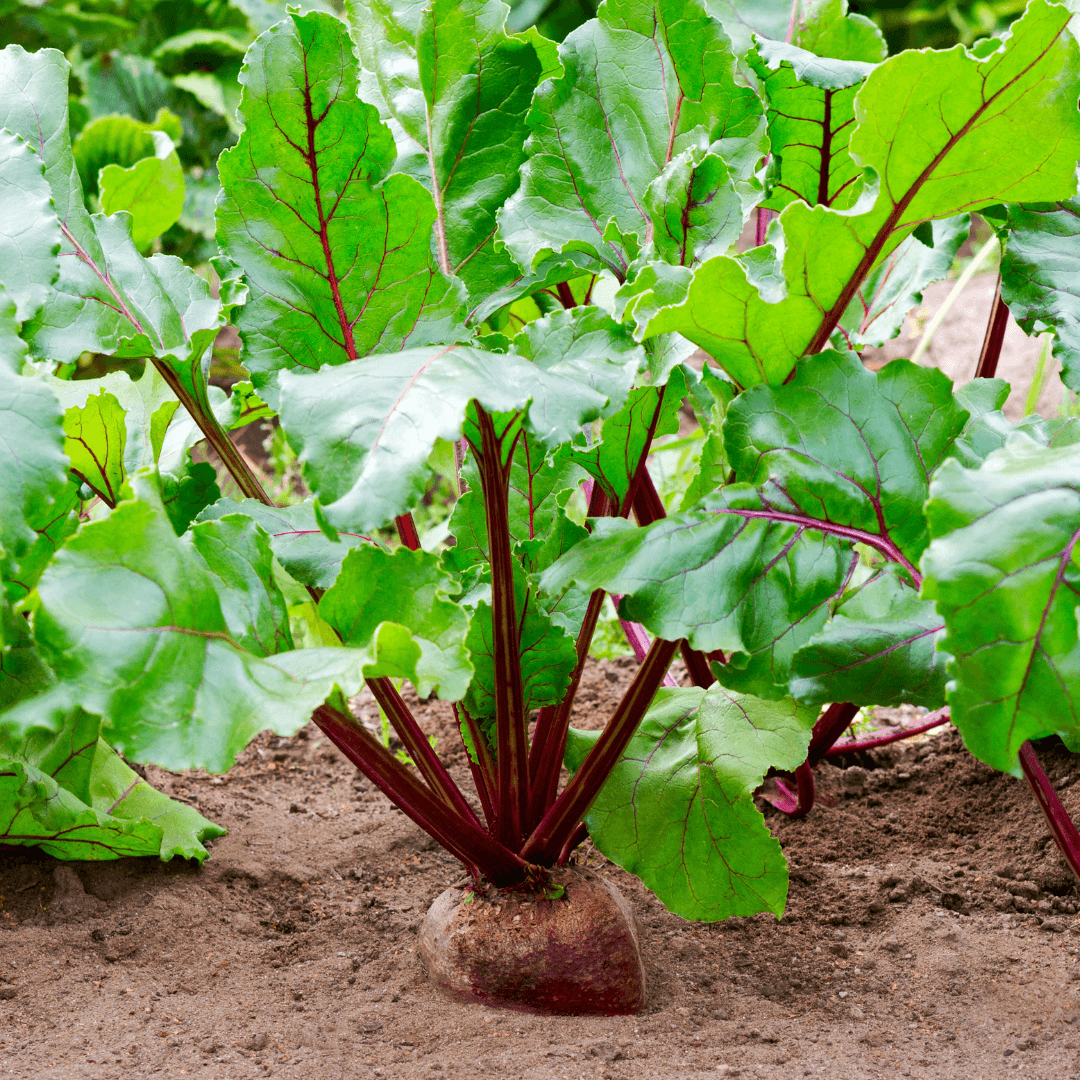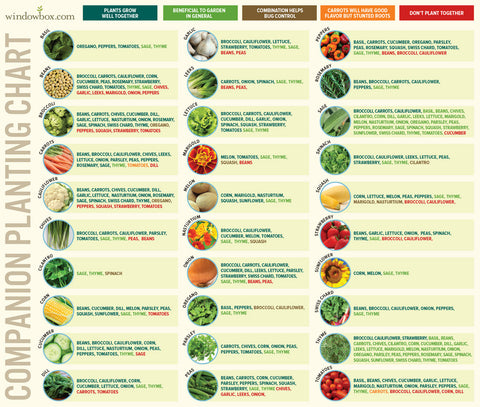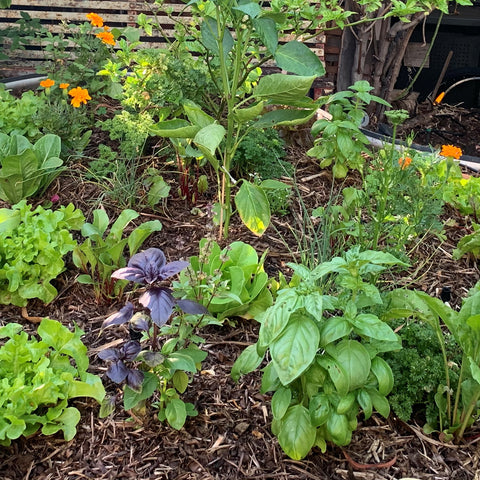Bergamot: The Ultimate Companion Plant For Vegetables
Bergamot: The Ultimate Companion Plant for Vegetables
Bergamot (Monarda) is a beautiful and versatile herb that can be used in a variety of ways. It is also a great companion plant for vegetables, offering a number of benefits.
In this blog post, we will discuss the benefits of companion planting with bergamot, as well as some specific vegetables that can benefit from its presence. We will also provide some tips on how to plant and care for bergamot in your vegetable garden.
Benefits of Companion Planting with Bergamot
There are many benefits to companion planting with bergamot. Here are a few of the most notable:
- Attracts pollinators: Bergamot is a magnet for pollinators such as bees, butterflies, and hummingbirds. These beneficial insects help to pollinate your vegetables, which leads to a better harvest.
- Repels pests: The strong scent of bergamot can help to repel a variety of pests, including aphids, mosquitoes, and Japanese beetles. This can help to keep your vegetables safe from damage.
- Improves soil quality: Bergamot is a nitrogen-fixing plant, which means it can help to improve the nitrogen content of your soil. This can benefit all of the plants in your garden, not just your vegetables.
- Discourages diseases: The strong scent of bergamot can also help to discourage the development of diseases in your vegetables. This is especially beneficial for plants that are susceptible to fungal diseases.
Vegetables That Benefit from Companion Planting with Bergamot
Bergamot can be a beneficial companion plant for a variety of vegetables, including:
- Tomatoes: Bergamot can help to repel tomato hornworms and other pests that can damage tomatoes. It can also help to improve the flavor of tomatoes.
- Carrots: Bergamot can help to repel carrot root flies and other pests that can damage carrots. It can also help to improve the sweetness of carrots.
- Peas: Bergamot can help to attract pollinators that help to pollinate peas. It can also help to improve the growth of peas.
- Squash: Bergamot can help to repel squash bugs and other pests that can damage squash. It can also help to improve the flavor of squash.
- Potatoes: Bergamot can help to repel potato beetles and other pests that can damage potatoes. It can also help to improve the yield of potatoes.
How to Plant and Care for Bergamot
Bergamot is relatively easy to plant and care for. Here are a few tips:
- Bergamot prefers full sun and well-drained soil.
- Plant bergamot in the spring or fall.
- Space plants 12-18 inches apart.
- Water bergamot regularly, especially during hot, dry weather.
- Fertilize bergamot every few months with a balanced fertilizer.
- Deadhead flowers to encourage more blooms.
Conclusion
Bergamot is a valuable addition to any vegetable garden. It can offer a number of benefits, including attracting pollinators, repelling pests, improving soil quality, and discouraging diseases. If you are looking for a way to improve your vegetable garden, consider planting bergamot.
Bergamot (Monarda spp.) is a beautiful and fragrant herb that can be grown in many different climates. It is also a popular companion plant for vegetables, as it can help to attract pollinators and repel pests.
Some of the best companion plants for bergamot vegetables include:
- Tomatoes: Bergamot can help to improve the flavor and yield of tomatoes.
- Squash: Bergamot can help to repel squash bugs and cucumber beetles.
- Beans: Bergamot can help to improve the nitrogen content of the soil for beans.
- Peas: Bergamot can help to repel aphids and other pests.
- Cucumbers: Bergamot can help to repel cucumber beetles.
- Carrots: Bergamot can help to repel carrot flies.
For more information about bergamot companion plants for vegetables, please visit Gardenia Inspiration. This website provides a comprehensive list of companion plants, as well as information on the benefits of companion planting.
FAQ of bergamot companion plants vegetables
Question 1: What are some good companion plants for bergamot?
Answer: Bergamot is a member of the mint family and has a strong scent that can repel pests. Some good companion plants for bergamot include:
- Tomatoes: Bergamot can help to deter tomato hornworms and other pests.
- Brassicas: Bergamot can help to repel cabbage moths and other pests.
- Carrots: Bergamot can help to improve the flavor of carrots.
- Beans: Bergamot can help to improve the nitrogen content of the soil for beans.
- Potatoes: Bergamot can help to deter potato beetles and other pests.
Question 2: What vegetables should not be planted near bergamot?
Answer: There are no vegetables that should not be planted near bergamot. However, bergamot can have a strong scent that can be overpowering to some plants. If you are concerned about this, you may want to avoid planting bergamot near delicate flowers or herbs.
Question 3: When should I plant bergamot companion plants?
Answer: Bergamot companion plants should be planted at the same time as the bergamot plant. This will ensure that they have time to establish themselves before the bergamot plant starts to produce flowers and attract pests.
Question 4: How much space should I leave between bergamot companion plants?
Answer: The amount of space you need to leave between bergamot companion plants will depend on the size of the plants. For example, you will need to leave more space between large plants like tomatoes and smaller plants like carrots.
Question 5: How do I care for bergamot companion plants?
Answer: Bergamot companion plants require the same care as bergamot plants. This includes watering, fertilizing, and weeding. You may also need to prune bergamot companion plants to keep them from getting too large.
Image of bergamot companion plants vegetables
5 different images of bergamot companion plants vegetables from Pinterest:
- Beetroot. Bergamot is a good companion plant for beetroot as it helps to repel pests such as aphids and cabbage moths.

- Carrots. Bergamot is also a good companion plant for carrots as it helps to repel carrot flies.

- Cucumbers. Bergamot can be planted near cucumbers to help deter cucumber beetles.

- Lettuce. Bergamot is a good companion plant for lettuce as it helps to repel aphids and other pests.

- Spinach. Bergamot can be planted near spinach to help deter slugs and snails.

Post a Comment for "Bergamot: The Ultimate Companion Plant For Vegetables"